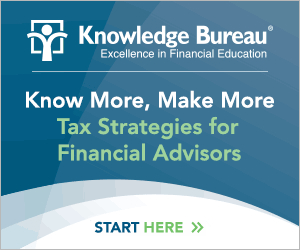Last updated: September 29 2015
Recognizing Financial Planning as a Profession

In its submission to the Expert Committee, Ontario Ministry of Finance on Financial Advisory and Financial Planning Policy Alternatives, Knowledge Bureau was pleased to provide recommendations on the merits of more tailored regulation to those engaged in financial planning and the giving of financial advice, specifically in the area of continuing professional development.
“The evolution of professional roles and responsibilities in the financial services has been a byproduct of a recent growth of wealth in Canada, particularly by an aging demographic and their families1. As a result, there is a renewed demand for financial advice, financial planning and in our view, a third category of services, family wealth management,” said Evelyn Jacks, President of Knowledge Bureau.
Continuing professional development must reflect current and advanced knowledge and skills required by professionals as they work with multiple stakeholders, said Jacks. In answer to the questions posed by the Expert Committee, the following specific recommendations were submitted:
Is there a difference between financial advice and financial planning? In our view, yes, the provision of financial advice related to product selection is indeed different from the provision of financial planning, and family wealth management, but there is a common thread: objective-based advice will match the plan to the product.
What Activities Should be Regulated? The following key recommendations were made in response:
Licensing: We believe that an academic path to continuing professional development that leads to specialized expertise is very important. But, rapid changes in the marketplace, driven by technology, changes in investment rules, demographics and taxation require continual updating of licensing and registration requirements, which should be regulated.
Education & Training: The integrity of the capital market system can be eroded by inadequate education of those who work with investors, not just at the time of licensing, but on an ongoing basis. Regulators should allow for broad participation in the development of educational standards, curricula and delivery of instruction by expert educators and educational institutions focused on the evolving needs of the industry.
Ethical Responsibilities: Financial advisors, planners and wealth managers need to monitor the acquisition, continued holding and ultimate disposition of securities as well as the behavioural finance related to their dealings with clients. Their role includes the education of the client, advocacy for the client and stewardship of the client’s resources. Training in each of these roles as well as ethics and fiduciary duties may form a part of ongoing educational requirements.
 |
Assisting advisors and planners in this regard begins with a clear definition of what is to be regulated. All stakeholders of the delivery of financial recommendations should clearly understand the parameters of their specific role, what their responsibilities are, what professional competencies they must have to practice in the role and what penalties will result when they perform short of the requirements.
Titles and Designations: Advisors, planners and wealth managers should be encouraged to continue to obtain specialized knowledge beyond their current license, titles or designations. This is particularly critical in the practice of family wealth management, where a broad and deep knowledge in the areas of business planning, tax and estate planning, for example, are required to provide detailed, holistic solutions, often for multiple stakeholders in the family. For these reasons we recommend an open architecture in the ongoing achievement of specialized titles and designations that follows educational guidelines appropriate for the industry.
Generally accepted principles for the development and execution of individual financial plans and for family wealth management would help to ensure client objectives are identified and met with appropriate solutions. These guidelines, however, must be revisited periodically in relation to tax and economic changes in a multi-faceted marketplace and must be accountable to improvements in personal and family net worth. This process will help advisors stay onside with legal standards.
For more information, contact Evelyn Jacks, President, Knowledge Bureau; 1-866-953-4769 or evelyn@knowledgebureau.com
ABOUT KNOWLEDGE BUREAU
Knowledge Bureau publishes and offers twenty-six online self-study courses qualifying for continuing education certification and leading to occupational skills diplomas. It is the home of the MFA™ (Master Financial Advisor) designation, which signifies specialization in retirement, business succession and estate planning in wealth advisory practices.
Knowledge Bureau is also home to the DFA (Distinguished Financial Advisor) Tax Services Specialist™ and DFA Bookkeeping Services Specialist™ designations for professionals in the tax, bookkeeping and accounting services. Its weekly news publication, Knowledge Bureau Report, is read by over sixteen thousand advisors and is active in social media, print and television.
Founded in 2003 by bestselling author and internationally acclaimed education provider Evelyn Jacks, Knowledge Bureau is a regular contributor on national media, providing commentary on federal and provincial regulation, specifically as it relates to tax and economic policy and global wealth management.
Evelyn has been influential in advising governments on tax and financial literacy policies. She was appointed by former Finance Minister, Jim Flaherty, to the Federal Task Force on Financial Literacy. She was also appointed by former Premier of Manitoba, Gary Filmon, to the Lower Tax Commission to advise on the direction of the provincial tax regime. Recently, Evelyn has co-founded the Manitoba Financial Literacy Forum in partnership with the Manitoba Securities Commission, dedicated to increase financial literacy in that province.
1According to Statistics Canada, amongst the 20% of family units with the highest incomes, or top income quintile families, average wealth increased by 80% between 1999 and 2012, rising from $721,900 to $1,300,100.
